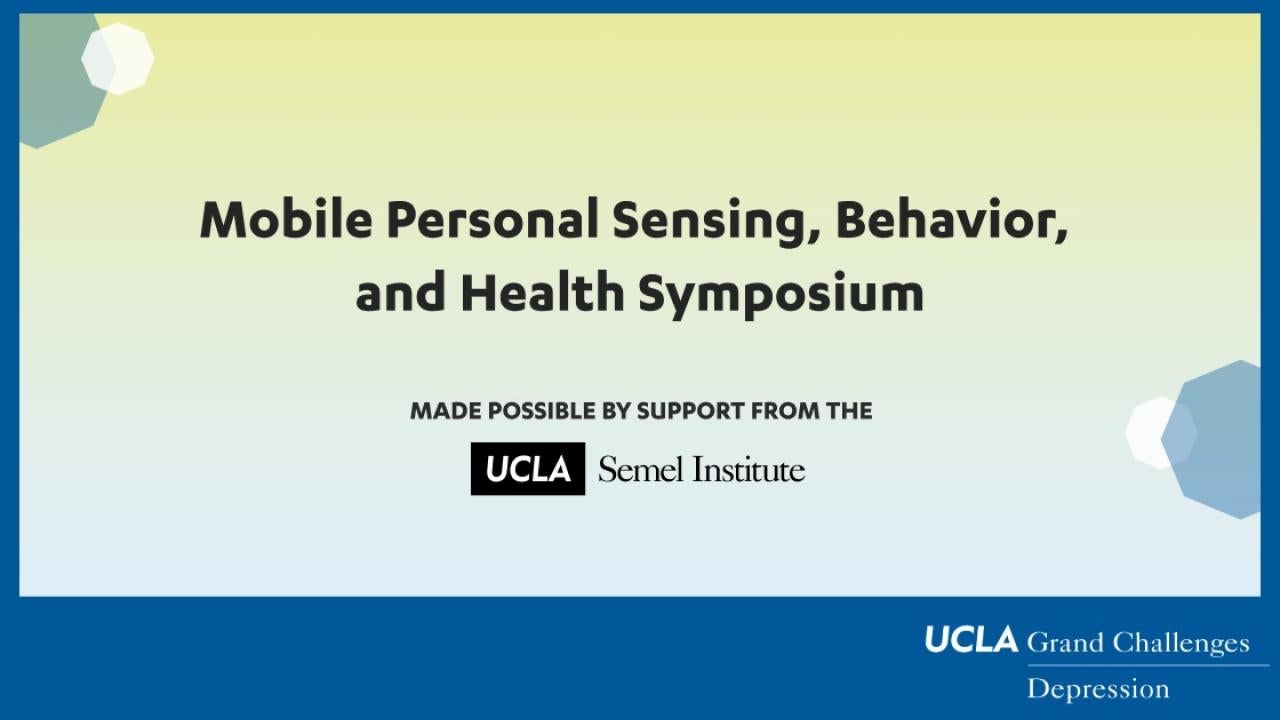
The UCLA Depression Grand Challenge held a half-day symposium open to the entire UCLA campus focused on mobile personal sensing, behavior, and health on Feb. 8, 2018. These technologies provided an overview for passively collecting data to better understand and treat depression.
The symposium was opened with a welcome and introductions from Nelson Freimer, MD (psychiatry professor at UCLA, and director of the DGC), Michelle Craske , PhD (psychology and psychiatry professor at UCLA and co-director of the DGC), and DGC collaborator David Mohr, PhD (psychology professor at Stanford University). These sessions were followed by talks from:
- Ian Gotlib, PhD (David Starr Jordan Professor and Chair, Department of Psychology at Stanford University)
- Tanzeem Choudhury, PhD (Associate Professor of Information Science, Director of People-Aware Computing at Cornell University)
- Daniel McDuff, PhD (Researcher at Microsoft Research)
- Konrad Kording, PhD (Penn Integrates Knowledge Professor at University of Pennsylvania)
- Katie Shilton, PhD (Associate Professor of Information Studies at University of Maryland)
- Mary Czerwinski, PhD (Research Manager Visualization and Interaction Research Group at Microsoft Research)
- Anind Dey, PhD (Professor and Dean of the Information School at University of Washington Professor and former Director, Human Computer Interaction Institute at Carnegie-Mellon University)
Experts presented ongoing research and findings while fielding questions from the audience. Though presenters used varying terms across their talks – “mobile personal sensing”, “remote behavioral sensing”, “digital phenotyping” – they all agreed that gathering data from devices is the key to better understanding, diagnosing, and treating mental health diseases.
View the full program for details. Thanks to the Semel Institute for Neuroscience and Human Behavior for funding the event.
